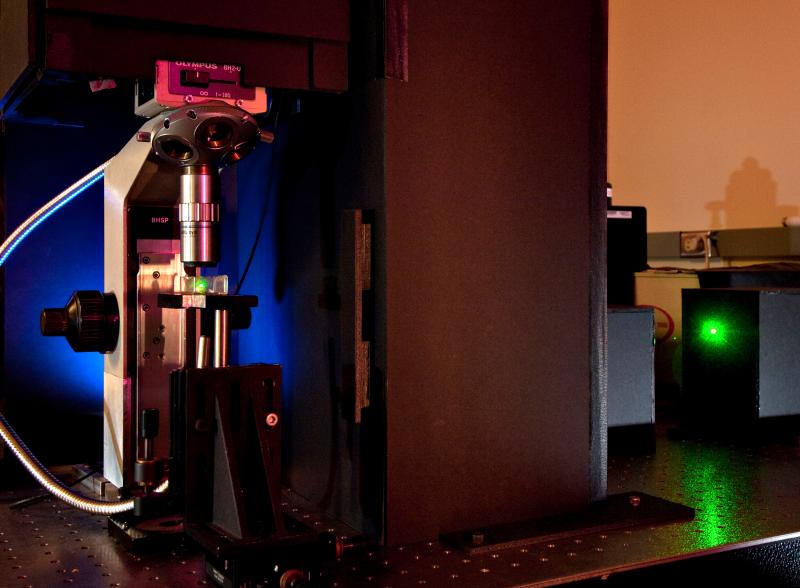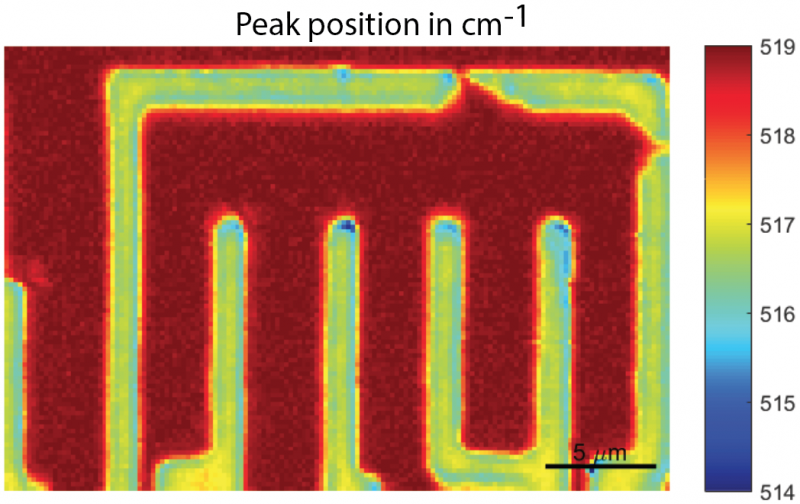Description
The Micro-Raman Spectrometer uses a fingerprint technique to identify materials based on vibrations. Its sensitivity can give information on composition and strain.
Capabilities
- 4 lasers: 355nm, 532 nm, 633nm and 785 nm.
- Spatial resolution: ~ 0.5 microns.
- Spectral resolution: < 1 cm-1.
- 2 spectrometers: depending on applications:
- 750 mm visible.
- 328 mm visible and Near IR optimized Si detector. (New 2025)
- Can collect down to 5 cm-1 with 532nm laser.
- Polarization control (both incident laser (including circularly polarized incident laser and signal).
- Raman mapping capabilities (New high-resolution stage installed in 2017).
- Photoluminescence from 400nm to ~1000nm.
No or minimal sample preparation
- Nondestructive.
- Works for most liquid, gas or solid.
- Pure phase, multi-phases, glasses, single crystals and even artwork, such as paintings.
Some applications
- Phase identification (compare to a published spectrum/ standard) • investigate small chemical/structural.
- Strain/defects in some material.
- Sample mapping.
- In situ characterization at high pressure and or temperature or within a medium.
Some limitations
- Most metals are difficult or impossible to observe.
- Sample fluorescent.
- Symmetry of the material.
Contact
Douglas Daniel
Associate Research Professional
DDaniel@asu.edu
480-727-8383
Emmanuel Soignard
Operations Director
Emmanuel.Soignard@asu.edu
480.965.7242
Techniques
- Optical spectroscopy
Documents and manuals
- File
- Fileraman_operation_18.pdf1.05 MB
ASU Unit
Knowledge Enterprise
Rates
| Cost for ASU Internal | Cost for ASU Internal with Staff Assistance | Cost for Other Academic/Non-Profit | Cost for Other Academic/Non-Profit with Staff Assistance |
|---|---|---|---|
|
$29.51/h
|
$72.56/h
|
$65.52/h
|
$162.12/h
|
Photos



